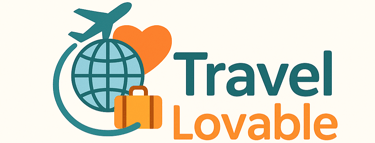Travel Trends 2025: Save Money & Explore Smarter
Explore top travel trends for 2025 and discover smart tips to save money, plan better, and enjoy the best destinations of the year.
Audal Conte
4/21/20257 min read


Introduction to Travel Trends 2025
As we approach 2025, the travel industry continues to evolve, reflecting changing consumer preferences, advancements in technology, and the shifting dynamics of global travel. Understanding emerging travel trends is vital for anyone looking to maximize their travel experience. By staying informed about these trends, travelers can make smarter decisions that enhance their journeys, ultimately leading to more efficient and enjoyable exploration of new destinations.
In recent years, there has been a noticeable shift towards smarter travel solutions. This encompasses a wide range of elements, from innovative booking platforms that simplify planning to eco-friendly travel options that allow individuals to explore responsibly. The integration of artificial intelligence and data analytics has made it easier for companies to offer personalized recommendations, ensuring that travelers can discover activities and accommodations that truly align with their preferences.
The importance of staying updated on these trends cannot be overstated. As the marketplace becomes increasingly competitive, new services and products emerge that cater specifically to the needs of the modern traveler. These tools not only help in saving money and time, but also provide insights that can lead to more meaningful travel experiences. For example, the rise of smart technology in travel has made it possible for people to navigate unfamiliar cities with ease and engage in activities that resonate with their interests.
Moreover, adapting to these innovations allows travelers to participate in a growing movement that prioritizes sustainability and local engagement. By aligning travel choices with these current trends, individuals can support local economies while minimizing their environmental impact. The next sections of this blog will delve deeper into specific travel trends anticipated for 2025, illustrating how they can revolutionize the way we explore the world and engage with diverse cultures.
Sustainable and Responsible Travel
As the travel landscape evolves towards 2025, a palpable shift towards sustainable and responsible travel practices is becoming increasingly evident. More travelers are now making conscientious choices, prioritizing eco-friendly options that aim to reduce their environmental footprint. Green accommodations, which emphasize sustainability in their operations, are gaining popularity. These establishments often utilize renewable energy sources, implement water-saving measures, and use eco-friendly materials, making it easier for travelers to reduce their impact. Furthermore, many travelers are also opting for carbon offsetting programs to balance out their travel emissions, thereby contributing to global efforts against climate change.
The rise of responsible travel embodies a broader commitment to not just visiting a destination, but actively contributing to its well-being. Supporting local communities is a core principle of this movement. By choosing to engage with locally-owned businesses, travelers can ensure that their expenditures directly benefit the residents of the area. This includes dining at local restaurants, purchasing handmade crafts, and participating in community-led tours. Such practices not only enrich the travel experience but also bolster the local economy.
Moreover, preserving natural resources is paramount in responsible tourism. Travelers are encouraged to respect wildlife and habitats, ensure they leave no trace, and utilize sustainable transportation options wherever possible. Simple steps, such as avoiding single-use plastics and participating in clean-up initiatives, can greatly enhance the sustainability of their journey. In this way, travelers can enjoy new experiences while also being mindful stewards of the environment. By integrating these sustainable and responsible travel practices, individuals can explore the world more meaningfully and affordably, paving the way for a more conscientious future in tourism.
The Rise of Remote Work and Travel
The emergence of remote work has significantly reshaped travel habits, particularly as we look towards 2025. A burgeoning segment of the workforce, often referred to as 'digital nomads,' increasingly blend their professional and personal lives by working while exploring different locales. This trend reflects a broader shift in lifestyle preferences, where individuals seek not only flexible working arrangements but also the opportunity to experience new cultures, environments, and adventures without letting their careers take a backseat.
As this nomadic lifestyle gains traction, effective travel planning becomes crucial. To ensure that remote work does not interfere with exploration, individuals must consider several essential factors. Firstly, reliable internet connectivity is non-negotiable; therefore, identifying locations renowned for their broadband infrastructure is vital. When selecting a destination, potential travelers should research the availability of high-speed Wi-Fi and backup connections. Cities such as Lisbon, Chiang Mai, and Medellín have emerged as hubs for remote workers, offering robust connectivity alongside rich cultural experiences.
Moreover, productive workspaces are indispensable for digital nomads. Many cities now boast coworking spaces designed for remote workers, providing not only necessary services such as printing and meeting rooms but also a community of like-minded individuals. Finding a suitable coworking space that aligns with personal work habits can enhance productivity while fostering networking opportunities with fellow travelers.
Lastly, balancing professional responsibilities with leisure activities is of paramount importance. Scheduling dedicated work hours ensures that tasks are promptly completed, while allocating specific times for exploration and relaxation promotes a fulfilling travel experience. As remote work continues to thrive, the ability to harmoniously merge work and leisure will undoubtedly encourage more individuals to embark on their journeys as modern digital nomads, redefining the narrative of travel in 2025.
Technological Innovations in Travel
As we look towards 2025, the travel industry is unmistakably poised to be revolutionized by technological innovations aimed at enhancing the travel experience. One of the most significant shifts is the pervasive use of smartphone applications that facilitate seamless booking processes. For instance, platforms like Tiqets simplify ticket reservations and experiences, allowing travelers to secure entry to attractions with just a few taps on their mobile devices. This convenience not only saves time but also helps travelers avoid long queues, ensuring that they can maximize their time exploring new destinations.
Moreover, the advent of artificial intelligence (AI) in travel planning is leading to highly personalized experiences. AI-driven tools can analyze user preferences, past travel histories, and current trends to curate customized itineraries that align with individual interests and budgets. Such advancements mean that travelers can enjoy tailor-made suggestions for accommodations, dining, and activities that reflect their unique tastes, ultimately resulting in more satisfying journeys. This personalized approach not only increases traveler satisfaction but can also identify budget-friendly options that might have otherwise gone unnoticed.
Additionally, smart technology in the form of wearables and IoT devices is enhancing the overall travel experience. For example, smart luggage equipped with GPS trackers can provide peace of mind for travelers, ensuring their belongings are secure. Furthermore, mobile keys for hotels eliminate the need for physical keycards, streamlining the check-in process and enhancing convenience. The integration of these technological innovations empowers travelers to explore more while spending less, allowing for a richer, more fulfilling experience.
Budget-Friendly Travel Strategies
In the ever-evolving landscape of travel, budgeting effectively has become crucial for travelers seeking to explore the world without breaking the bank. As we look towards 2025, adopting budget-friendly travel strategies will not only enhance the overall experience but also allow for greater opportunities to discover new destinations. One of the primary avenues for cutting costs is securing affordable accommodation. Travelers should consider alternative lodging options such as hostels, vacation rentals, or even homestays, which often provide a more economical solution compared to traditional hotels.
Planning ahead can significantly impact travel expenses, particularly when it comes to finding cheap flights. By being flexible with travel dates and utilizing fare comparison tools, travelers can identify the most cost-effective options available. Additionally, signing up for flight alert services can notify travelers of fare drops, ensuring they can book tickets at the lowest prices. In 2025, consider flying mid-week or during off-peak seasons to maximize savings, as these strategies typically yield substantial reductions in airfare.
Food and activities are two other essential components that can influence the overall travel budget. To save on meals, travelers can explore local markets or opt for dining at food trucks and casual eateries, which often provide authentic culinary experiences at lower costs. Furthermore, when it comes to attractions and activities, utilizing platforms like Tiqets can empower travelers to secure special deals on entry fees and experience packages. By researching available discounts and planning itineraries ahead of time, travelers can ensure enjoyable and memorable experiences without the financial strain.
Ultimately, smart budgeting strategies not only foster financial discipline but also enhance the joy of travel. They allow adventurers to enjoy a variety of experiences while maintaining control over their expenses. Embracing these practices will undoubtedly lead to a more enriching travel experience in 2025.
Experiential Travel: Focusing on Activities Over Destinations
In recent years, there has been a notable shift in travel preferences, with many travelers prioritizing experiences over mere sightseeing. This trend known as experiential travel emphasizes participation in activities that foster deeper connections with the local culture, environment, and community. Rather than simply visiting popular tourist attractions, travelers are now engaging in immersive experiences that enrich their understanding and appreciation of a destination.
One prominent aspect of experiential travel is the rise of local tours that showcase authentic cultural experiences. These tours often include cooking classes, traditional crafts, or guided explorations led by local experts. By participating in these activities, travelers gain insights into the history, values, and everyday lives of the residents, which can be far more rewarding than passive observation. Moreover, this approach supports local economies and fosters sustainable tourism practices.
Adventure activities are another facet of this travel trend, appealing to those seeking thrill and excitement in their journeys. From hiking breathtaking trails in natural parks to participating in water sports, travelers are increasingly opting for hands-on experiences that create lasting memories. Such activities not only promote wellness through physical engagement but also encourage environmental awareness by cultivating a connection with nature.
To make the most of experiential travel, it is essential to conduct thorough research before embarking on a journey. Seek out local tour operators or platforms that specialize in unique experiences tailored to individual interests. Additionally, travelers should be open to spontaneity; some of the best experiences come from unplanned encounters or recommendations from locals.
By focusing on activities rather than merely visiting destinations, travelers unlock a richer understanding of the world around them, ultimately leading to more meaningful memories and connections. This shift towards experiential travel signifies a transformation in how we engage with our surroundings while exploring new places.
Conclusion and Call to Action
As we look ahead to 2025, the evolving landscape of travel presents numerous exciting opportunities for adventurers and explorers. Throughout this blog post, we have examined the crucial travel trends that are set to shape our journeys in the coming years. From the increasing emphasis on sustainable tourism to the rise of personalized travel experiences, adapting to these changes will not only enhance your travel planning but also make your excursions more meaningful.
Staying informed about these smart travel trends will empower you to make better decisions regarding your travel plans. Whether it's leveraging technology for seamless booking, considering eco-friendly transportation options, or seeking out genuine local experiences, integrating these insights can lead to more enriching encounters during your travels. By embracing these progressive trends, travelers can enjoy a more curated and tailored adventure that aligns intimately with their preferences and values.
We encourage you to take the next step in your travel planning by utilizing available resources like Tiqets. This platform offers a variety of tools for organizing and booking your travel experiences efficiently, ensuring that your journey is not only well-structured but also enjoyable. So as you plan your next adventure for 2025, remember to consider how these trends can transform your travel experience. Equip yourself with the knowledge to explore better while saving more, and embark on a journey that is both fulfilling and sustainable.
Explore
Discover travel tips and inspiring stories here.
Connect
Support
info@travelovable.com
© 2025. All rights reserved.
Disclaimer
Founded by Abdoul Conte
